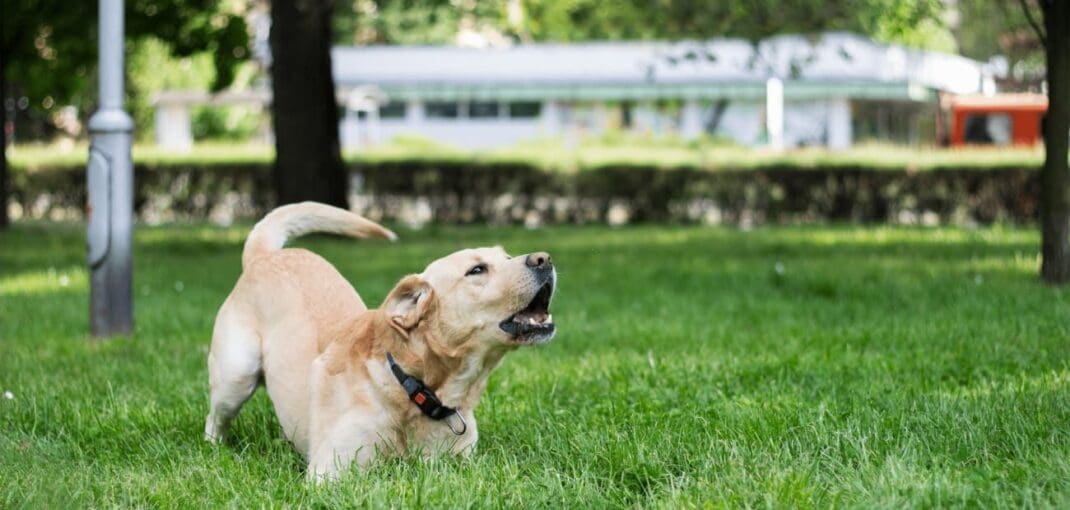Although it is said that some dogs bark more often than others, one thing is certain – all dogs bark. Wondering why dogs bark is a bit like asking why people talk. The answer is simple – it’s their way of communicating! Find out exactly what your dog’s barking might indicate and if there is anything you can do to stop your dog barking.
Barking dog – what does it mean?
Your dog’s barking in the vast majority of cases means that he wants to communicate something. So don’t punish your dog – more often than not, your dog’s barking is due to deep concern for you and the other members of your little pack. Your dog is certainly aware that you are not as observant as he is – so he is trying to alert you or communicate that something important is going on.
However, there are many other reasons why your dog may bark. These include:
behavioural problems – these could be, for example, a communication disorder between dog and carer,
an inability to discharge emotions,
severe stress,
aggression – in this situation, growling and specific body posture also appear,
inability to satisfy the dog’s needs,
it may also be an attempt to attract the attention of the carer and encourage him to play.
As a dog’s guardian, you will certainly be able to distinguish your dog’s moods and be able to determine whether, at any given moment, the barking is due to excitement and joy or perhaps stress and displeasure. You are also sure to recognise your dog’s threatening barking – if, for example, during a walk your dog encounters another pet from the neighbourhood that he is not fond of.
Why does a dog bark in the backyard at night?
Dogs that do not spend the night indoors but, for example, in a shed in the backyard, very often start barking in the middle of the night. What is the reason for this? Think about why you decided to keep your dog in the backyard. Probably to warn you of intruders and to protect your home from burglary. So, you have to admit that the dog does this role well. Most dogs bark at night in the yard precisely because something is bothering them. It could be a person passing nearby, a wild animal or an unfamiliar noise to the dog.
However, if your dog reacts nervously to all noises and barks repeatedly throughout the night, consider finding him another place to sleep. This is better than wondering why your dog is barking in the backyard at night. You can certainly find a quiet and peaceful corner in your home where your pet can sleep.
What can be done to stop your dog barking?
Many people visit a dog behaviourist in the hope that the specialist will stop their dog barking. Unfortunately, there is only one answer to the question of what to do to stop your dog barking – there is no single effective way to stop your dog barking. If you don’t want your dog to bark too often, start teaching it as early as puppyhood. When your puppy starts barking, try to occupy him with something else. Do not punish him for barking, as this can lead to your dog developing frustration and, later on, behavioural problems. When you see your dog get up quickly and want to start barking, keep him busy with something else – such as playing or practising commands. To do this, have dog toys ready in each room.
It is also necessary to make sure that your dog’s barking is not because he is having some kind of problem. Perhaps he is communicating to you that he needs to go outside for his need? Or maybe your dog’s bowl has run out of dog food or it’s feeding time? Or maybe today you forgot to play with your dog’s favourite toy? This is where you need to be particularly careful. If you don’t want your dog to learn that barking results in you starting to play with your dog, remember – only start playing when your dog is calm and tranquil. Otherwise, your dog will learn that he needs to bark a little to get you to play with him. Focus on positive conditioning – if your dog is calm and lying on his bed, reward him. If he barks – ignore him. In this way, your dog will quickly learn that barking is not worth it.
Learn to understand your dog’s speech!
Remember, however, that you will never be able to 100% teach your puppy dog. This is a dog’s natural behaviour that stems from its instincts. You can, on the other hand, learn to distinguish dog speech. Here are some examples:
three or four barks with a moment’s pause in between – ‘Everybody gather!’,
a long series of single barks or barking combined with a howl – ‘I’m alone, is anyone here?’,
continuous barking of the dog, slow and low in tone – ‘Attention, intruder! We are in danger!’
a sigh – ‘I need to rest for a while’ or: ‘I’m going to give myself a break, because I don’t think it’s going to do any good’,
a dog’s threatening barking – if combined with a growl, it can indicate fear or readiness to fight.
These are just examples that very often appear in dog advice books. However, they will certainly show you that dog speech can be very varied, and understanding what your dog wants to communicate to you can greatly enrich your relationship.






